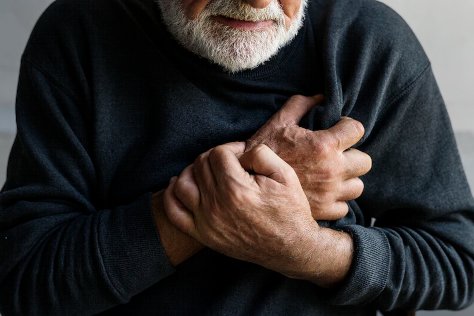Heart Attack
Unlike some cardiovascular diseases, heart attacks can come on suddenly and without much warning.
They often occur when a blocked artery prevents blood from reaching a part of your heart. Recognizing the signs and symptoms of a heart attack is crucial for timely intervention.
Every second counts during a heart attack, so it’s vital to call 911 immediately if you suspect you’re having one. Early treatment can minimize heart damage and significantly improve the chances of recovery.
Symptoms
Chest Pain or Discomfort
This is the most common symptom and may feel like pressure, squeezing, fullness, or pain in the center of the chest. It may last for a few minutes or go away and come back. This pain can sometimes be mistaken for indigestion or heartburn, making it important to pay attention to other accompanying symptoms
Pain in other parts of the body
You might feel pain or discomfort in one or both arms, your back, neck, jaw, or stomach. This pain can radiate from the chest to these areas and vary in intensity, often leading people to misattribute it to other causes like muscle strain.
Shortness of breath
This can occur with or without chest discomfort and may feel like you can’t catch your breath or are panting. It might be accompanied by a feeling of tightness in the chest, which can occur even when you’re at rest or doing minimal physical activity.
Nausea or Vomiting
Some people may feel sick to their stomach or actually vomit during a heart attack. This symptom is more common in women and can be misleading, as it is easy to confuse with a stomach virus or food poisoning.
Feeling unusually lightheaded or sweaty
Feeling unusually lightheaded or sweaty: You might break out in a cold sweat, feel dizzy or lightheaded, or feel like you might faint. This can be a result of your body responding to the heart attack by activating your fight-or-flight response, leading to a sudden drop in blood pressure.
These symptoms can vary from person to person, and not all heart attacks look the same. Some men might experience just a few of these symptoms, while others might have severe, intense signs. Additionally, women often experience different symptoms than men, such as shortness of breath, nausea, and back or jaw pain.
If you or someone else is experiencing these symptoms, don’t hesitate—seek medical help right away. Immediate action can be the difference between life and death, and knowing how to recognize and respond to these signs can save lives. Remember, it’s better to be safe and get checked out by a healthcare professional than to brush off symptoms that could be life-threatening.
For men who have heart disease or who had a heart attack, here are questions to ask your doctor about managing your health:
- How much physical exercise is OK for me?
- Do I need to have a stress test?
- Do I need to go to a cardiac rehabilitation program?
- When can I return to work? Are there limits to what I can do at work?
- How can I change my lifestyle to make my heart healthier?
- How much alcohol is OK to consume (if any)?
- Is it OK to be around people who smoke?
- Is it OK to be sexually active?



